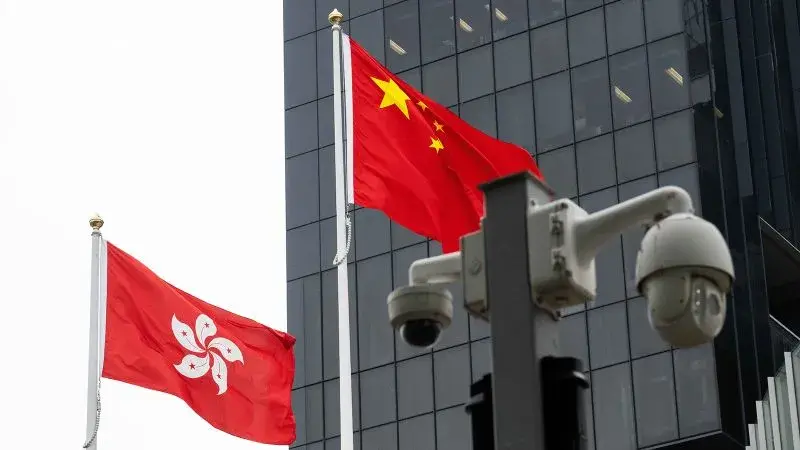Though it consistently ranks among the world’s safest big cities, police in the Asian financial hub say the new cameras are needed to fight crime – and have raised the possibility of equipping them with powerful facial recognition and artificial intelligence tools.
That’s sparked alarm among some experts who see it as taking Hong Kong one step closer to the pervasive surveillance systems of mainland China, warning of the technology’s repressive potential.
Hong Kong police had previously set a target of installing 2,000 new surveillance cameras this year, and potentially more than that each subsequent year. The force plans to eventually introduce facial recognition to these cameras, security chief Chris Tang told local media in July – adding that police could use AI in the future to track down suspects.
[…]
Hong Kong police have repeatedly pointed to other jurisdictions, including Western democracies, that also make wide use of surveillance cameras for law enforcement. For instance, Singapore has 90,000 cameras and the United Kingdom has more than seven million, Tang told local newspaper Sing Tao Daily in June.
[…]
“The difference is how the technology is being used,” said Samantha Hoffman, a nonresident fellow at the National Bureau of Asian Research who has studied China’s use of technology for security and propaganda.
Places like the United States and the UK may have problems with how they implement that technology, too – but “this is fundamentally different… It has to do specifically with the system of government, as well as the way that the party state… uses the law to maintain its own power,” said Hoffman.
[…]
Hong Kong has more than 54,500 public CCTV cameras used by government bodies – about seven cameras per 1,000 people, according to an estimate by Comparitech, a UK-based technology research firm.~~



If they didn’t want to be annexed by China, they shouldn’t have signed a treaty to do so.
What? They didn’t sign the treaty. The treaty was between the PRC and the UK. HK didn’t sign….
The agreement was signed by the UK and China (in 1947 if I’m not mistaken). As @hddsx already said, it is China that doesn’t hold up to the deal.
That aside, there is no reason to violate the universal human rights, no matter what the initial agreement says.
[Edit typo.]
It was signed in 1984: https://en.wikipedia.org/wiki/Sino-British_Joint_Declaration
You are otherwise correct.
China is in clear violation of the agreement, since it explicitly stated that civil rights should remain protected for fifty years following the 1997 handover date.
Now that’s a bold and uninformed take.